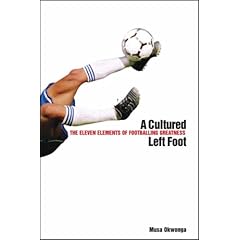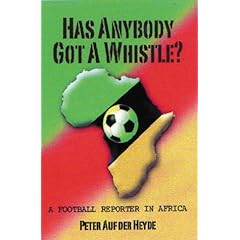Shenhua!
 So, with the invaluable assistance and good company of Shanghai Ultra, I actually made it to a Shanghai Shenhua match last night: a tense, top-of-the-table thriller between 4th place Shenhua and surprise table-toppers Changchun Yatai.
So, with the invaluable assistance and good company of Shanghai Ultra, I actually made it to a Shanghai Shenhua match last night: a tense, top-of-the-table thriller between 4th place Shenhua and surprise table-toppers Changchun Yatai.As we approached the stadium from the Shiji Avenue metro station it became apparent to me that the structure I was walking towards was not Hongkou stadium. SU said that Shenhua hadn't actually played at Hongkou all year because of renovation work and the women's World Cup and that most games had been played at this stadium in Pudon. Sinosoc hadn't even got that bit right! That said, apparently the weekend game had been cancelled (the Chinese Super League apparently having the kind of fixture consistency of the Brazilian league), so I hadn't missed anything.
Buying tickets was a fascinating experience as Shenhua don't bother with mere trifles such as box offices, ticket agents or even fixed prices. They simply hand over tickets to an army of touts who swarm around the stadium making whatever deals they can with punters. Eventually, after much dickering about price with a half-dozen touts, we simply paid money to a fellow at the gate and were escorted in without ever receiving a ticket. Despite the presence of uniformed army officers, the security was so slack it made BMO look like Alcatraz.
Inside, the atmosphere was a little weak. It's an athletics stadium (never good), with maybe 15,000 seats, only two-thirds of which were full. However, a reasonably large proportion of the crowd were members of one of two big supporters groups, which meant there was a fair bit of noise despite the cavernousness. SU assured me that the larger of the two groups (with whom we stood for the second half), known as the Blue Devils, are China's best known ultras.
I use the term "ultras" advisedly, for it's not British-style singing which predominates as a form of support, but rather a lot of energetic displays of flag-waving. The flags, in keeping with global cultural norms, are primarily written in English - my particular favourite being the one bearing the Galatasaray-inspired but locally re-interpreted slogan "Welcome to The Hell".
The singing, which I would describe as reasonably steady but neither especially loud nor passionate, was based mainly on recognizable English or Italian tunes (e.g. "Go West"), with the word "Shenhua" inserted at the appropriate moment. The only unique song I head was actually a version of "Popeye the Sailor-man", again with "Shenua" inserted at the final beat.
SU suggested that Chinese fan culture tended to want to model itself on Korean and Japanese fan culture, but there's none of the discipline you see in those leagues. The Shanghainese, a laid-back lot, probably simply can't be arsed to do all the intense work required to get that spectacular co-ordination effect. China does have one important element of a real football culture in place though: travelling fans. Roughly 100 people made the trip down from Channgchun (and that's a full 2300 km away - roughly London to Damascus) and made a lot of noise.
Anyways, the match: Shenhua had the better of a really tedious first-half but the score at the interval was 1-1 due to completely shambolic defending. It got worse just after the break when Shenhua went down 2-1 after another daft goal. Things looked dire as Changchun started playing with five at the back. With twenty minutes to go, though, Shenhua withdrew a defender and put on fan favourite Xie Hui to play as a third striker. The switch to a 3-4-3 completely changed the tempo of the game and straight through to the final whistle this game was exciting, with Shenhua setting up wave after wave of attacks. Needing a win to retain even the slightest hope of a championship, the blues poured forward and were rewarded with an equalizer with a Hamilton Ricard equalizer five minutes from time.
A third goal threatened, but with Changchun indulging in some truly disgraceful time-wasting techniques, the referee controversially blew full-time just as Shenhua had won a corner. This prompted the Blue Devils to send a volley of coke bottles onto the field. I was standing next to Frank, one of the Blue Devils' leaders, at the time. He just shook his head and said: "This is China".
He meant to indicate corruption in the game, of course, which was certainly endemic a few years ago during the "Black Whistle" gambling scandals of 2001 which did lasting harm to the game's image in China. But the game was actually clean, and though a few fouls were missed, the referee (who, in a nod to propriety, was not Chinese but foreign) was pretty consistent.
While the quality of the football on offer left a lot to be desired (I don't think either team would trouble a good MLS side), it did belie some of the stereotypes about Chinese football. East Asian squads are sometimes caricatured as being overly cautious, lacking in spontaneity and imagination, and concerned more with team discipline than attacking football. I didn't see that at all: in fact, positional and tactical discipline was notable by its near-total absence. Lack of imagination? Sometimes that's difficult to distinguish from lack of talent. Unlike some MLS squads I could mention, Shenhua did not seem to have any trouble shifting between long balls, crosses, and short balls to feet when on the attack. The second half was full of naive, attacking football and regardless of the quality of the flow of play, that's always heartening to watch.
Chinese football isn't going to light the world on fire any time soon, but it has some of the fundamentals right. What is desperately needed is some decent coaching - anyone who could field a team with a modicum of positional sense wold have a big advantage here. But for a mere $4 "entry fee", last night's game was certainly value for money.
















